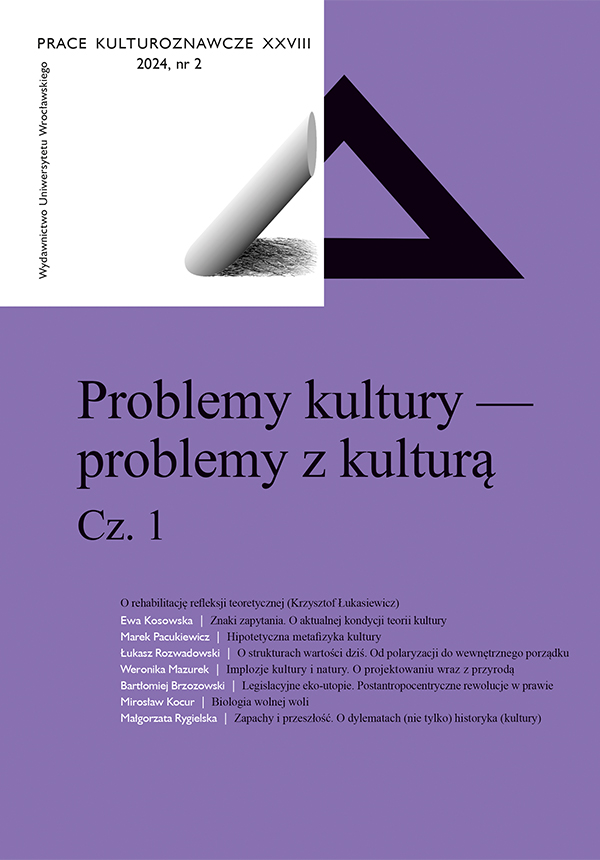Znaki zapytania.
O aktualnej kondycji teorii kultury
Question marks. On the current condition
of cultural theory
Author(s): Ewa KosowskaSubject(s): Sociology of Culture
Published by: Wydawnictwo Uniwersytetu Wrocławskiego
Keywords: culture; theory; cultural theory;
Summary/Abstract: An attempt at describing the condition of cultural theory in contemporary Poland might be assessed as, to say the least, a hazardous endeavour. It is not my intention, however, for this essay either to subject any particular texts to criticism or to refer to any particular authors’ positions. What I do intend is to verbalise some of my personal impressions after reading theoretical literature published in Poland over the last fi fty years. This is quite a long period, enabling one to observe both certain continuity and the change that occurs in the paradigmatic conditions signifi - cant for the ways in which culture is interpreted. These ways are not only determined by external infl uences (the amount of which has increased markedly over the last thirty years, as compared with earlier periods), but also dependent on the local traditions of various scholarly disciplines that utilise the concept of culture, adapting it for their specifi c needs. Since culture was recognised as an autonomous subject of study, creating a theory of culture has become a requirement binding not only adherents of the modern paradigm, but also those of the postmodern one. It ought to be observed that what is understood by the term of cultural theory in Poland is not the creation of a theory of Polish culture. Quite the contrary, many researchers attempt to establish theoretical interdependencies with a view to co-creating a universal theory of culture. In such a situation, attempts at building a contextual theory, i.e. one that takes into account the specifi city of local traditions and habits, are sometimes marginalized. Nevertheless, they ought to be considered important and inspiring. In his concept of the mnemotopos, Stefan Bednarek presumed the existence of a certain community of representations and signs. This line of thought led me to asking whether traces of community to be found in Poles’ symbolic representations and dreams, indicating the longue-durée existence of axiological basis for individual and collective behaviours, also translate into the sphere of intellectual choices made in the processes of describing and interpreting the cultural reality that surrounds us. I am asking about the extent to which common and traditional patterns of perceiving the world, as well as ways of self-interpretation that are both common and specifi c for Polish culture, reappear in those descriptions, characterisations and syntheses.
Journal: Prace Kulturoznawcze
- Issue Year: 28/2024
- Issue No: 2
- Page Range: 15-30
- Page Count: 16
- Language: Polish

